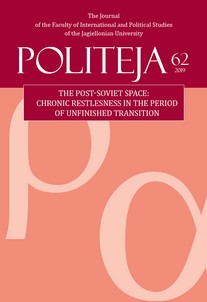Major Trends in Russian Geopolitics after 1991
Major Trends in Russian Geopolitics after 1991
Author(s): Joachim DiecSubject(s): Political history, Government/Political systems, International relations/trade, Military policy, Transformation Period (1990 - 2010), Present Times (2010 - today), Geopolitics
Published by: KSIĘGARNIA AKADEMICKA Sp. z o.o.
Keywords: Russia; geopolitics; foreign policy; political thought;
Summary/Abstract: Russian geopolitical thought after the collapse of the USSR can be classified in different ways. However, it always remains under the influence of the same conditions (the trauma of a historical downfall) and proposes clear indications for the foreign policy of the state. The article presents a preliminary view of some directions in Russian geopolitical thought from the point of view of their origin. The study focuses on seven trends: the visions of Great Russia in a multipolar world order, Neo-Eurasianism, the insular theory, military geopolitics, the thought of political geographers, the geopolitics of the Russian World doctrine with its varieties in the form of information geopolitics and cyber-geopolitics, and, last but not least, geoeconomics. A typological study of contemporary Russian geopolitical thought reveals two developmental tendencies: one aiming at radical and ideological concepts and the other proposing a semi-scientific approach.
Journal: Politeja - Pismo Wydziału Studiów Międzynarodowych i Politycznych Uniwersytetu Jagiellońskiego
- Issue Year: 16/2019
- Issue No: 62
- Page Range: 141-160
- Page Count: 20
- Language: English

